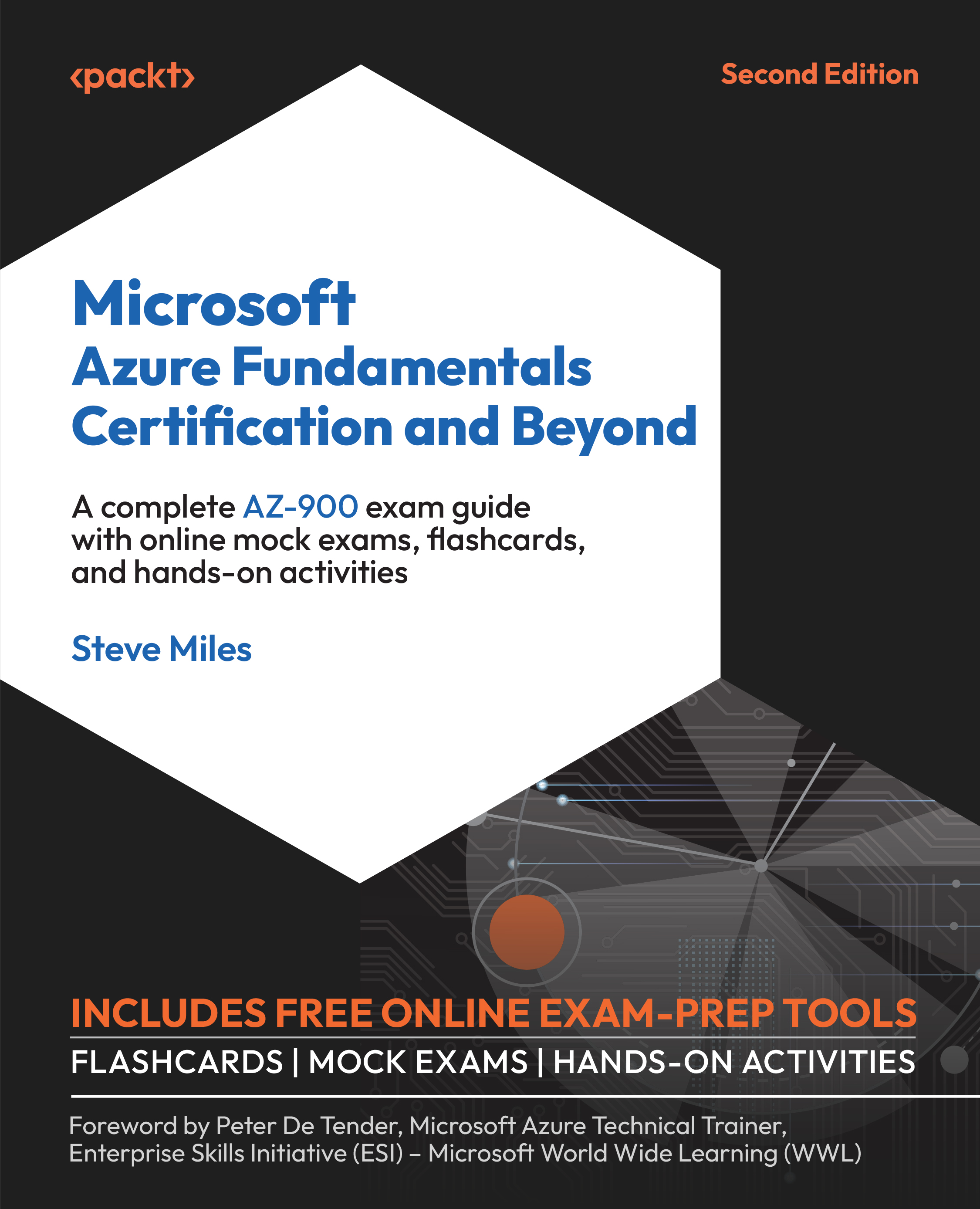Azure CLI
The Azure CLI is a “cross-platform CLI management tool” for interacting with Azure resources. It is written in Python. The CLI can be used instead of the GUI for creating and managing your Azure environments.
The Azure CLI provides cross-platform support, meaning you can install and use it on Windows, Linux, or macOS. It draws parallels to Bash scripting and is a popular management tool choice when the focus is on Linux systems and is designed for complex and automation tasks.
Much like the Az PowerShell module, commands can be executed using interactive commands. You can use commands directly from the shell prompt or scripts to automate repetitive or complex tasks that have many steps and require actions to be performed against many different entities.
In this case, a series of commands are assembled in the syntax format of the shell being used, and the script is then executed by issuing a single command at the shell prompt. This is done within the...































































